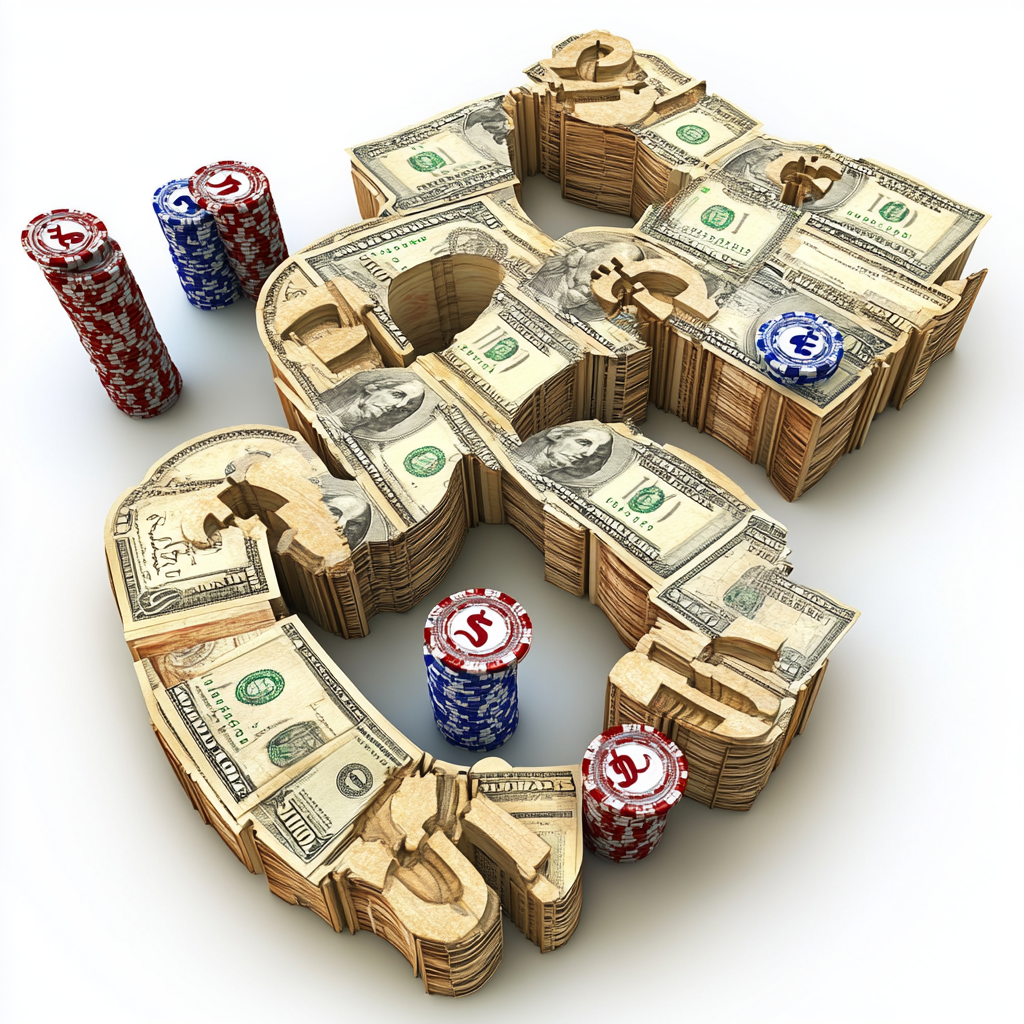
“Louisiana Legislator’s Significant Betting Tax Proposal Postponed”
In a chapter of legislative drama that seems to unfold like a sports movie, the bright lights of Louisiana's sports betting world dimmed temporarily as Representative Roger Wilder (R-71) hit the brakes on his ambitious bill aimed at hiking taxes to astronomical heights. Grab your popcorn, because the story behind House Bill 22 is as riveting as a last-minute game-winning touchdown!
So, what was all the fuss about? House Bill 22 sought to catapult the tax rate on digital sports betting revenue from a mere 15% to a jaw-dropping 51%. Yes, you heard that right—a whopping fifty-one percent! If this bill had made its way through the legislative maze, it was projected to add between $151 million and $205.3 million to the coffers of the state, intending to cushion the blow of a flattening state income tax. While the vision of newfound revenue may have danced in lawmakers' heads like confetti at a championship parade, those in the trenches of the sports betting industry had a completely different perspective.
Imagine being a gambling operator staring down the barrel of one of the highest tax rates in the nation. Not only would this tax increase place Louisiana on the proverbial map as a high-tax state, but it also posed the risk of pushing bettors back into the shadows of illegal markets. Wade Duty, the cautious spokesperson for the Louisiana Casino Association, laid it out like this: the proposed tax rate could stifle competition and drive businesses away. After all, when your competitors are offering better odds and promotions, it's easy for consumers to wander off into the wilderness of illicit gambling.
Now, let’s take a moment to play armchair economist. The lawmakers might have been inspired by states like New York, which boasts a daunting tax rate but also an enormous population and established market dynamics. How could Louisiana, with its charming Cajun culture and significantly smaller market, support such a hefty rate? It's akin to trying to flex like a bodybuilder when you're just starting out—bold in ambition but possibly overreaching in execution.
During the tense House Ways and Means Committee hearing, industry voices echoed in unison. Jeff Ifrah, co-founder of the iDevelopment and Economic Association, described the proposed tax hike in no uncertain terms as a "drastic and counterproductive shift in policy." The potential ripple effects—higher costs for operators, less attractive offers for consumers—left industry folks fearing that Louisiana's sports betting scene could become a cautionary tale rather than a success story.
Even Brandt Iden, the Vice President of Government Affairs for Fanatics, raised an eyebrow at the drastic tax increase, questioning whether such heavy-handed measures aligned with Republican principles of lower taxation. I mean, who's actually advocating for the handcuffing of growth in the very industry that lawmakers aspire to monetize? The irony hung thick in the air like the scent of gumbo at a neighborhood cookout.
Faced with the overwhelming chorus of dissent, Rep. Wilder masterfully decided to defer the bill during the committee hearing. So, what now? Wilder took a step back, proclaiming that he still had a thing or two to learn. It seems that understanding the nuances of an industry is as vital as a quarterback reading the defense at the line of scrimmage. Amid all this, Wilder remains tenacious, aiming to gather more insights from stakeholders and perhaps refine his chances for a comeback in the future.
We must also keep our eyes peeled for the broader landscape of U.S. sports betting regulation. With states like Illinois and Ohio making their own tax increases to 20%-40%, the tug-of-war over lucrative revenue and competitive markets shows no signs of letting up. Louisiana's predicament is not an isolated case but part of a national trend as states wrestle with their fiscal ambitions versus the health of the betting ecosystem.
Ultimately, the whole saga encapsulates the tightrope that lawmakers must walk—juggling the need for revenue with the responsibility of fostering an industry where excitement can thrive. The fate of House Bill 22 illustrates that government and industry are often caught in a dance where one misstep can lead to a tumble.
So here’s to the ongoing narrative that marries politics and play, gambling and governance—because if there’s one thing we can all agree on, it's that change is often more thrilling than a last-minute victory. How Louisiana navigates these waters remains to be seen, but we’ll all be watching closely as the story unfolds!
Want to stay up to date with the latest news on neural networks and automation? Subscribe to our Telegram channel: @HighriskandPayments

